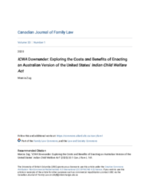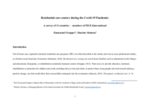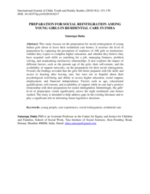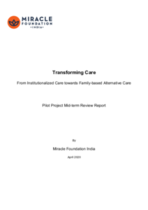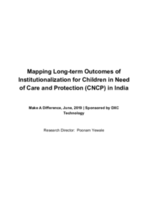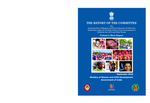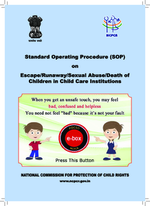ICWA Downunder: Exploring the Costs and Benefits of Enacting an Australian Version of the United States' Indian Child Welfare Act
This article from the Canadian Journal of Family Law finds that an Australian version of the Indian Child Welfare Act (ICWA) of the United States is feasible and could significantly reduce Indigenous child removals and the break up of Indigenous families and communities in Australia.

